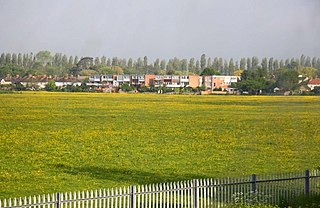Loading AI tools
United Kingdom legislation From Wikipedia, the free encyclopedia
The Commons Registration Act 1965 (c. 64) is an act of Parliament in the United Kingdom enacted in 1965 that concerns the registration of rights to common land, town greens, and village greens in England and Wales.[1][2] The legislation under the Harold Wilson government made reference to the Land Registration Act 1925 and Land Registration Act 1936.
| Act of Parliament | |
 | |
| Long title | An Act to provide for the registration of common land and of town or village greens; to amend the law as to prescriptive claims to rights of common; and for purposes connected therewith. |
|---|---|
| Citation | 1965 c. 64 |
| Territorial extent | England and Wales |
| Dates | |
| Royal assent | 5 August 1965 |
Status: Amended | |
| Text of the Commons Registration Act 1965 as in force today (including any amendments) within the United Kingdom, from legislation.gov.uk. | |

The Countryside and Rights of Way Act 2000 and the Commons Act 2006, which gave new opportunities to register greens, amended the act.[3]
In the late 1960s, following the enactment of the Commons Registration Act 1965, the Open Spaces Society worked hard to register common land and common rights, in the three years allowed by the act. However, still many commons were lost through failure to register them. The act has reduced the historical rights of households that did not register under the act. For example, villages in Wolvercote north of Oxford used to have grazing rights on Wolvercote Common. However, since the act came into force, only those households that registered under the act now have this right.[4]
Several hundred square kilometres of ‘waste land’ that was eligible for registration under the Commons Registration Act 1965 was not, in fact, finally registered. As a consequence, it ceased to be recognised as common land. A partial remedy for this defect in the earlier legislation is provided by the Commons Act 2006. Under schedule 2, 4 of the act, applications that failed under the original registration process may, in certain circumstances, be reconsidered – offering, in effect, a second chance for the land to be confirmed ('re-registered') as common. Land that is re-registered in this way will enjoy the special legal protection afforded to common land. It will also be subject to the public right of access introduced by the Countryside and Rights of Way Act 2000; or, may qualify as a section 193 'urban' common (in which case, it would also be subject to a right of access for horse-riders).[5]
Seamless Wikipedia browsing. On steroids.
Every time you click a link to Wikipedia, Wiktionary or Wikiquote in your browser's search results, it will show the modern Wikiwand interface.
Wikiwand extension is a five stars, simple, with minimum permission required to keep your browsing private, safe and transparent.